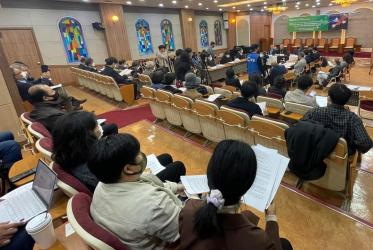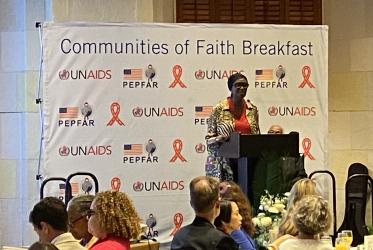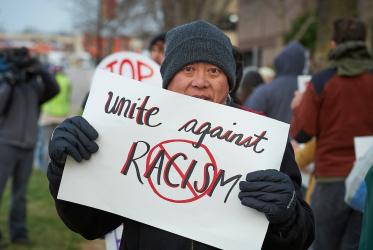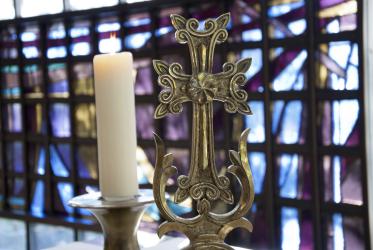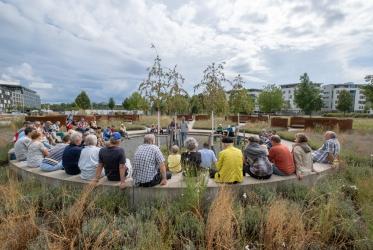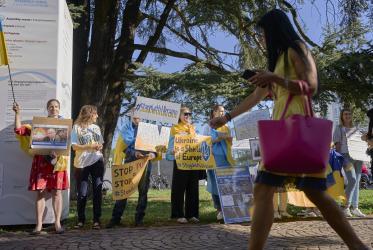Displaying 161 - 180 of 1102
Le secrétaire général par intérim du COE en visite à Moscou
17 October 2022
WCC acting general secretary visits Moscow
17 October 2022
Applications open for upcoming Young Adults Training for Religious Amity
15 September 2022
Workshop explores how interreligious dialogue brings trust and respect
15 September 2022
WCC releases minute on consequences of the 2020 Nagorno-Karabakh war
08 September 2022



